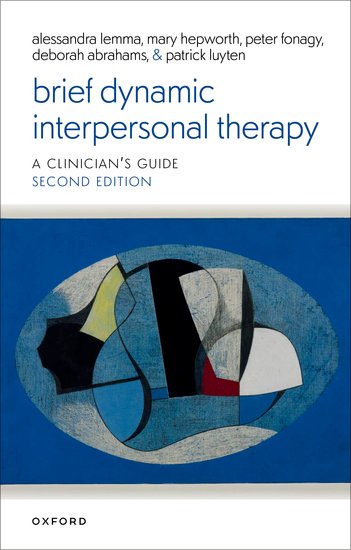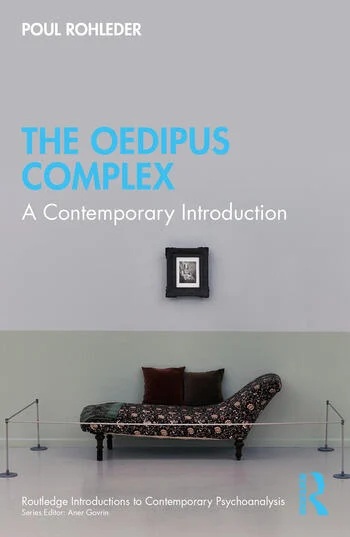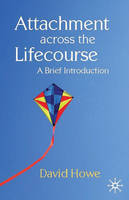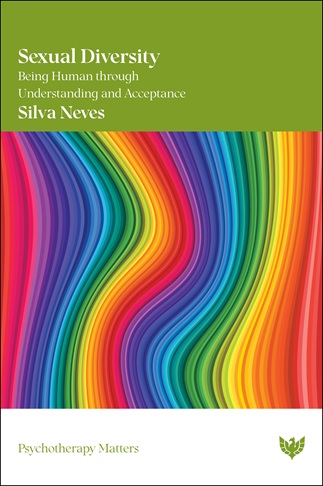A Clinical Guide to Psychodynamic Psychotherapy
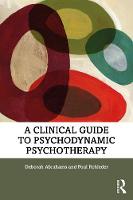
Book Details
- Publisher : Routledge
- Published : December 2020
- Cover : Paperback
- Pages : 352
- Category :
Individual Psychotherapy - Catalogue No : 95403
- ISBN 13 : 9780815352662
- ISBN 10 : 9780815352
Also by Deborah Abrahams
Also by Poul Rohleder
The Oedipus Complex: A Contemporary Introduction
Price £21.99
There are currently no reviews
Be the first to review
A Clinical Guide to Psychodynamic Psychotherapy serves as an accessible and applied introduction to psychodynamic psychotherapy.
The book is a resource for psychodynamic psychotherapy that gives helpful and practical guidelines around a range of patient presentations and clinical dilemmas. It focuses on contemporary issues facing psychodynamic psychotherapy practice, including issues around research, neuroscience, mentalising, working with diversity and difference, brief psychotherapy adaptations and the use of social media and technology. The book is underpinned by the psychodynamic competence framework that is implicit in best psychodynamic practice. The book includes a foreword by Prof. Peter Fonagy that outlines the unique features of psychodynamic psychotherapy that make it still so relevant to clinical practice today.
The book will be beneficial for students, trainees and qualified clinicians in psychotherapy, psychology, counselling, psychiatry and other allied professions.
Reviews and Endorsements
This is a scholarly textbook giving a comprehensive and detailed view of the field of psychotherapy based on psychodynamic principles, addressing history, concepts and their divergences; it plunges into the many conflicting research studies comparing psychodynamic psychotherapy with other, often more popular therapies. It presents interestingly the debate between following protocols versus developing competences. The fundamental principles and indeed competences necessary for clinical practice are carefully laid out with their rationale. And a useful final section details difficulties, complexities and adaptations. The promise is of a teaching and reference work on a thoroughly established and well-thought-through professional practice - a promise it keeps, handsomely. As a study guide for students and for practitioners, it deserves to have pride-of-place in the libraries of the most experienced practitioners. The reader senses the coming-of-age of an intensely skilled and respected mental health practice. Professor R.D. Hinshelwood, Emeritus Professor, Department of Psychosocial and Psychoanalytic Studies, University of Essex.
In this excellent and user-friendly text, Deborah Abrahams and Poul Rohleder combine their extensive clinical experience as clinicians and trainers to bring a contemporary overview of psychodynamic practice. The book is comprehensive and covers essential competences for the practice of psychodynamic psychotherapy, with useful reading and resources for therapists. It engages thoroughly with pressing questions for psychodynamic therapists such as how to work briefly as well as addressing the challenges of online therapy. I highly recommend this text, which will no doubt become a staple both for the psychodynamic therapist in training as well as established therapists. Highly recommended. Professor Alessandra Lemma, Consultant, Anna Freud National Centre for Children and Families and Visiting Professor, Psychoanalysis Unit, UCL, London.
Deborah Abrahams and Poul Rohleder provide a concise, informative and fascinating clinical presentation of psychodynamic theory and practice. This is a go-to book for newly qualified and other practitioners interested in working psychodynamically. The authors, both very experienced in their fields as clinical psychologists and psychotherapists, draw on clinical material and provide the right mixture of theoretical introduction to compliment and illuminate clinical practice. In this venture they provide a detailed reading of the psychodynamic field including long term and brief therapy and contemporary techniques like remote working (that is using the computer and the telephone). It is also helpful that a wealth of additional materials both videos and references for further reading are provided in this compact text. This is a good reference book, easy to read, which you will find yourself returning to. Maxine Dennis Consultant Clinical Psychologist, Psychotherapist, Psychoanalyst Tavistock Clinic, London.
About the Author(s)
Deborah Abrahams is a psychoanalytic psychotherapist and chartered clinical psychologist with over 25 years of clinical experience, including 15 years in the NHS. She is a dynamic interpersonal therapy (DIT) practitioner, supervisor and trainer as well as Programme Director of DIT at the Anna Freud Centre. Deborah is a senior member of the British Psychotherapy Foundation and has a private psychotherapy practice in North West London offering supervision, psychoanalytic and psychodynamic psychotherapy.
More titles by Deborah Abrahams
Poul Rohleder is a psychoanalytic psychotherapist and chartered clinical psychologist, as well as a dynamic interpersonal therapy practitioner. He has over 15 years' experience of working in public mental health care systems and in private practice. He is a trustee of the British Psychoanalytic Council and sits on several other professional committees and is currently a senior lecturer at the Department of Psychosocial and Psychoanalytic Studies, University of Essex, UK.
Customer Reviews
Our customers have not yet reviewed this title. Be the first add your own review for this title.
You may also like
Sexual Diversity: Being Human through Understanding and Acceptance
Silva Neves
Price £17.99
save £2.00


